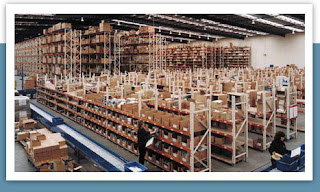 Inventory management simply refers to the management and control of stocks as well as the awareness of how products or goods move from place to place. Balancing of costs of inventory, both of finished goods and raw materials, is one of the most essential factors needed to be considered by businesses and companies. Inventories represent money and expenses for businesses and corporations; in fact, it is also one of the most sensitive parts of a business that has to be aware of. Inventory represents a business’s investment and it has to be well managed and organized in order to aim for profits and make the best out of what businesses have. If inventories are not controlled or monitored closely like some small businesses, they can lose huge amounts of customers due to unreliability, increased expenses, and prices of goods that can be really costly. Successful inventory management results in higher profits, increase in customers, controllable production, and lesser expenses to maximize profits as a whole. In order to maintain a successful and efficient inventory management, it involves wise individuals who visions and sees the business world widely. Balancing of costs of inventory is a must and is considered very considerate and important so that businesses won’t lose their benefits for expenses that are uncontrollable. Many of the business owners fail to predict costs and expenses in full, which results in higher expenses that expected initially. Other expenses and fees might include: taxes, inventory storage fees, insurance fees, and cost of money tied up in inventories. Managers often have to look at wide assortments of stock and the increased rates of turnovers if they manage to find out their business trend and how their market acts towards products and services. Managers will also have to keep stocks as low as possible and obtain higher amount of products in order to purchase them as cheaply as possible for the sake of businesses to make profits and maximize market groups. Also, managers have to make sure that they have an adequate inventory on hand without getting caught with obsolete items, though.
Inventory management simply refers to the management and control of stocks as well as the awareness of how products or goods move from place to place. Balancing of costs of inventory, both of finished goods and raw materials, is one of the most essential factors needed to be considered by businesses and companies. Inventories represent money and expenses for businesses and corporations; in fact, it is also one of the most sensitive parts of a business that has to be aware of. Inventory represents a business’s investment and it has to be well managed and organized in order to aim for profits and make the best out of what businesses have. If inventories are not controlled or monitored closely like some small businesses, they can lose huge amounts of customers due to unreliability, increased expenses, and prices of goods that can be really costly. Successful inventory management results in higher profits, increase in customers, controllable production, and lesser expenses to maximize profits as a whole. In order to maintain a successful and efficient inventory management, it involves wise individuals who visions and sees the business world widely. Balancing of costs of inventory is a must and is considered very considerate and important so that businesses won’t lose their benefits for expenses that are uncontrollable. Many of the business owners fail to predict costs and expenses in full, which results in higher expenses that expected initially. Other expenses and fees might include: taxes, inventory storage fees, insurance fees, and cost of money tied up in inventories. Managers often have to look at wide assortments of stock and the increased rates of turnovers if they manage to find out their business trend and how their market acts towards products and services. Managers will also have to keep stocks as low as possible and obtain higher amount of products in order to purchase them as cheaply as possible for the sake of businesses to make profits and maximize market groups. Also, managers have to make sure that they have an adequate inventory on hand without getting caught with obsolete items, though.It is a normal fact that businesses want to expand their products and services globally. However, it is not any easy task when it comes to balancing expenses and cash in hands. First, it is important to look at current wants and needs; in order to expand a business, there must be a great balance in what you really need and what you want. Most businesses have what they don’t need, yet they want something else and that surely isn’t a good sign for profits either. The problem of balancing demand and supply happens to all businesses, corporations, and indeed, partnerships. Repeating conflicts and problems that occur seems to be common for all; however, the fact that it happens a lot of time will further make it a habit and will result in turnovers as the next time arrives. In order to solve this problem, the management of inventory and the balancing of demand and supply has to be monitored closely. If the supplies are higher than demands, costs of inventory will increase and would rather result in higher expenses. If demands are lower than supplies, there will be an opportunity cost, which indeed sacrifices a business’s chance to sell their products and goods. To make profit maximization happen, businesses have to balance the demands and supplies as well as know how to predict past trends. This way, the expenses will decrease and the demands might also increase in the future due to raises in profits.
Learn About Stocks
What are stocks? Well, businesses keep stocks or finished goods in warehouses in order to transport them to their customers. How many stocks should a business keep? It is indeed a very hard question to answer because there are several circumstances that can make it uneasy to visualize how much is needed. First, it depends on the size of the business. If a large business is expanding its market and network, a large, balanced, amount of stock might be needed. A small business, for instance, might produce what is only needed in order to keep stocks low and make businesses work efficiently. Another question arises from businesses, “How should we price out products?” Generally, it depends greatly on many factors such as: expenses, market trends, profits, external issues, and internal issues within a business. If prices are too high compared to other businesses, competition between businesses will just vanish because your business will not even be visible within a market. If a business decreased prices of products, higher demands of products might increase. However, product quality and costs of making products can result in a great amount of loss and deficit in turn.



